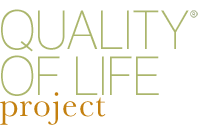WALL STREET JOURNAL, September 16, 2009
For France, a Joie de Vivre Index
Sarkozy to Add New Indicators, Such as Well-Being, to Measure Economic Health
PARIS — Nicolas Sarkozy was elected president two years ago on a pledge to boost France’s economic prosperity. Now he is suggesting a different way to measure that prosperity — one that includes factors such as vacation time, health care and family relationships.
From now on, to gauge the economy’s health, France will consider well-being in addition to the classic measure of gross domestic product, Mr. Sarkozy said Monday in a speech at the Sorbonne, part of the University of Paris.
France’s President Nicolas Sarkozy delivered a speech at the Sorbonne University in Paris on Monday. In the speech presenting the findings of a committee headed by Nobel Prize-winning economist Joseph Stiglitz, the president said new measures are needed in the wake of the financial crisis, which was triggered by an overreliance on free-market principles. “If the market was the solution to all problems and was never wrong, then why are we in such a situation?” asked Mr. Sarkozy. “We need to change criteria.”
The so-called Stiglitz commission has been working at the French president’s behest for 18 months on recommendations for measuring well-being. In its report, the group — which includes 1998 Nobel laureate Amartya Sen among its two dozen members — said tracking household income and consumption would provide a better indication of living standards than GDP. In the longer term, the panel said, governments must pay more attention to sustainability to determine what level of well-being can be maintained for future generations.
Mr. Sarkozy isn’t the first politician to criticize GDP, which measures a country’s aggregate output, as the dominant yardstick of economic performance. In 1968, Robert Kennedy complained during his U.S. presidential campaign that GDP “counts napalm and counts nuclear warheads.” Since then, many economists have said GDP isn’t a fully adequate way to measure growth, but no one has come up with a viable alternative.
Many of Mr. Sarkozy’s domestic policies have focused on fueling output. He has chipped away at France’s 35-hour workweek, encouraging employees to work overtime to boost production. He cut income taxes for high earners, and his administration launched a “cash for clunkers” program to help jump-start the French auto-making industry.
Still, Mr. Sarkozy’s efforts, like those of other world leaders, have been thwarted by the global downturn. France’s GDP is expected to shrink 3% this year.
Taking into account well-being would likely paint a rosier picture of the economy in France, where workers take long vacations and have generous social-security benefits.
Nicolas Sarkozy is suggesting gauges of economic health encompass well-being in addition to GDP. Measures could include:
- Employment levels
- Health care
- Vacation
- Household assets and income
- Consumption
- Education
Mr. Sarkozy said he would urge other world leaders, many of whom are gathering at the Group of 20 meeting in Pittsburgh toward the end of the month, to take up the commission’s recommendations and adopt new indicators too.
“What we measure affects what we do,” said Mr. Stiglitz, who also spoke at the Sorbonne. “If we have the wrong measures, we will strive for the wrong things.”
The commission didn’t propose a single composite indicator to replace GDP. Instead, it suggested that each country design its own basket of indicators, including such factors as unemployment, insecurity or inequality.
France’s statistical institute, Insee, said it will work on providing some of the data recommended by the Stiglitz panel, in particular to better evaluate household assets. The Organization for Economic Cooperation and Development, the Paris-based club of 30 industrialized nations, said it was ready to help implement the panel’s recommendations.
